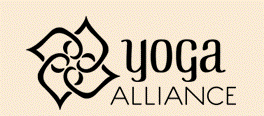How do I choose a strong brand name?
Written by Éamon Chawke | February 28, 2023
Unhelpfully, trade mark lawyers and brand advisers often give conflicting answers to this question.
The latter will often say that a brand name should speak to the consumer and easily/immediately communicate the brand message (what the product is, what it’s for, who it’s for etc.), whereas the former will usually say that a brand name should be as distinctive as possible and have clear blue water all around it, such that it stands apart from competitor brand names (e.g. Uber says nothing at all about cars or transport, WhatsApp says nothing at all about electronic messaging, Starbucks says nothing at all about coffee etc.).
It’s tempting, for start-ups in particular, to choose a brand name that speaks to the consumer (e.g. tells the consumer what the product is) by including in the brand name terms that are somewhat descriptive (e.g. the London Beer Club). It’s tempting because it means the business owner has to do less work, and spend less money, on educating the public about the product/service on sale, what it does and who it’s for. However, that short term advantage is outweighed by the long-term disadvantage of having a brand name that does not have clear blue water all around it. In other words, a brand name like the London Beer Club will always and forever get lost in the noise because there will always be other business using one or more of those three descriptive words (either as part of a primary brand name or as part of a secondary brand asset such as a logo or a tagline).
The best approach in my experience is to pick a brand name that is, if not unique/novel, at least somewhat distinctive and somewhat individual. It is always better in my view to choose a brand name that is unusual and unknown, and to suffer the short-term consequences of having an unknown brand name that says nothing whatsoever about the product/service you are putting on the market (i.e. as above, the fact that you have to spend money getting your new brand name out there). In the long run, you will have a strong and distinctive brand, in which you can invest/develop goodwill, reputation, customer loyalty, brand recognition etc., and for which it will ultimately much easier (and therefore cheaper!) to secure trade mark protection.
Take the recent EU trade mark case of YAplus DBA Yoga Alliance v Swami Vidyanand (Case T‑443/21). This case highlights the issue of trade marks with a weak distinctive character and how it impacts the scope of their protection.
In 2018, Mr. Swami Vidyanand filed an EU trade mark application for the following logo in relation to education and training activities (the “Application”):

The Application was opposed by YAplus DBA Yoga Alliance on the basis that they had any earlier EU trade mark registration for the following logo covering, amongst other things, education and training activities (the “Registration”):

Initially, the opposition was successful (on the basis that the activities were the same and the marks sounded highly similar, even though there were considerable visual and conceptual differences between the marks). However, the initial decision was reversed and both the Board of Appeal and the General Court of the EU agreed that the Application and the Registration were not confusingly similar.
The General Court went to great lengths to emphasise that where marks are only similar to the extent that they coincide in terms which are non-distinctive or distinctive to a very low degree (i.e. in this case, the words “YOGA ALLIANCE”), then then other factors are likely to carry more weight (e.g. in this case, the fact that the logos are visually different) and its likely that there will be found to be no likelihood of confusion.
Briffa comment
This case reminds us that when a business chooses a brand name that is non-distinctive or distinctive to a very low degree, it will be difficult not only to secure trade mark protection in the first place but also to enforce any trade mark rights that may ultimately be secured.
It is sometimes said that if the verbal element of the trade mark is lacking in distinctiveness (e.g. in this case, the verbal element “YOGA ALLIANCE”), that lack of distinctiveness can be compensated for by seeking trade mark protection in the context of a more complex logo with both verbal and non-verbal elements (i.e. the aim being that the logo/mark as a whole, incorporating both the verbal and non-verbal elements, will be distinctive). However, as this case demonstrates, merely managing to secure trade mark protection is of limited value if the resulting registration is insufficiently broad to ground an opposition or an infringement claim. The end goal should be securing a sufficiently broad monopoly that the trade mark owner has the ability to actually prevent direct competitors from using a brand logo, and/or a brand name, that looks or sounds similar.
In the world of e-commerce and Google ads and social media marketing, it is simply not good enough to just have visually distinctive brand assets (in other words, a logo that looks interesting or otherwise pleasing). You must also have a strong brand name, which is distinctive in its own right, ignoring any font or colour or stylization or logo or other brand assets with/in which the name may be presented (things like fonts and stylization and logos will reliably change over time anyway). Ultimately, if you choose a brand name that is descriptive, non-distinctive and/or already in use by others, you will be at an immediate disadvantage because you will always have to compete for access to domain names, social media account/profile names, SEO so on.
So do yourself a favour and pick a brand name that is as distinctive as possible (if you need to use descriptive terms to educate your consumers about what you are selling, use those descriptive terms in other ways e.g. as part of secondary brand assets such as logos and taglines). After you’ve picked your brand name, take advice from a trade mark lawyer as soon as possible (who should run searches on trade mark, domain, company and other important registers, as well as searches on search engines, news website and social media platforms to discover, before you commit to a brand name, any third-party use that might deprive you of your brand exclusivity). Finally, subject to the results of the searches, file a trade mark application ASAP and plant the flag!
Briffa are experts in all aspects of trade mark law and practice. If you would like to arrange a free 30-minute consultation with one of our very friendly lawyers, please get in touch.
Written by Éamon Chawke – Partner

